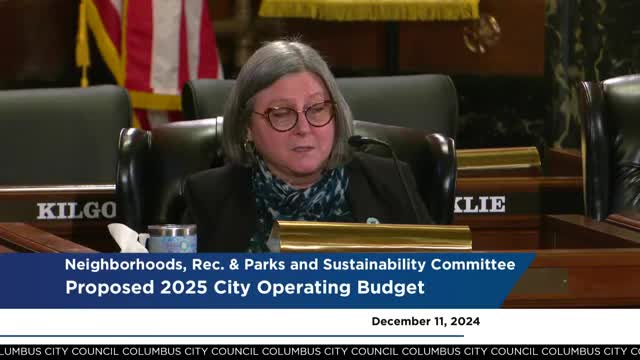Neighborhood organizer urges council to pilot asset‑based community development; Department of Neighborhoods offers follow‑up
Get AI-powered insights, summaries, and transcripts
Subscribe
Summary
A long‑time neighborhood organizer asked council to pilot asset‑based community development training and small‑block pilots; Department of Neighborhoods director Kim Douglas offered to have staff follow up.
At the end of the budget hearing, community member Chet Ridenour testified and urged the council to adopt asset‑based community development (ABCD) strategies across city planning and training, and to pilot door‑level or block‑level projects in multiple neighborhoods.
Ridenour, who said he serves as president of a neighborhood foundation and coordinates a block watch, recommended city staff incorporate ABCD strategies into existing department trainings and civic education for area commissions. He cited research and organizations in support: “FEMA has shown that one of the most likely indicators for how well communities bounce back after a disaster or a crisis is how well they know their neighbors,” Ridenour said, and he referenced a Nextdoor study and Harvard Kennedy School research on neighborhood connectivity.
Ridenour asked the city to consider small, neighborhood pilots in three to five blocks and to include ABCD in continuing education for city staff and civic leaders. Director Kim Douglas responded that she and her deputy were aware of the work and that her office would reach out to Ridenour to engage further. “I would be happy to engage again. I will have my office reach out,” Douglas said.
Why it matters
Ridenour framed ABCD as a low‑cost approach to build social resilience and reduce long‑term service demand by strengthening neighbor relationships and local civic capacity. He also cited published research and a documentary tied to the broader civic‑engagement literature.
Next steps
Director Douglas indicated the Department of Neighborhoods will follow up directly with Ridenour to explore coordination and potential pilots.
